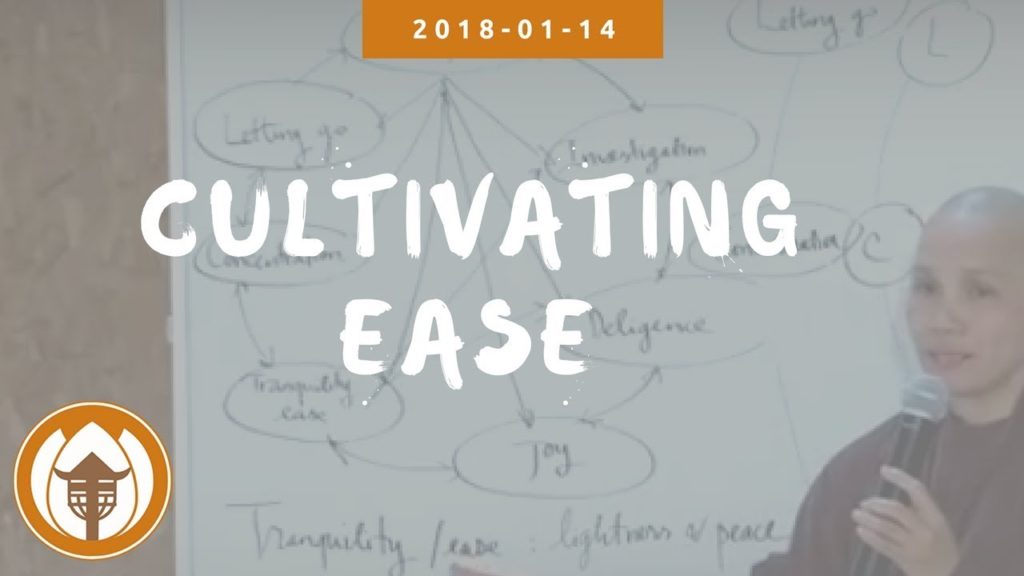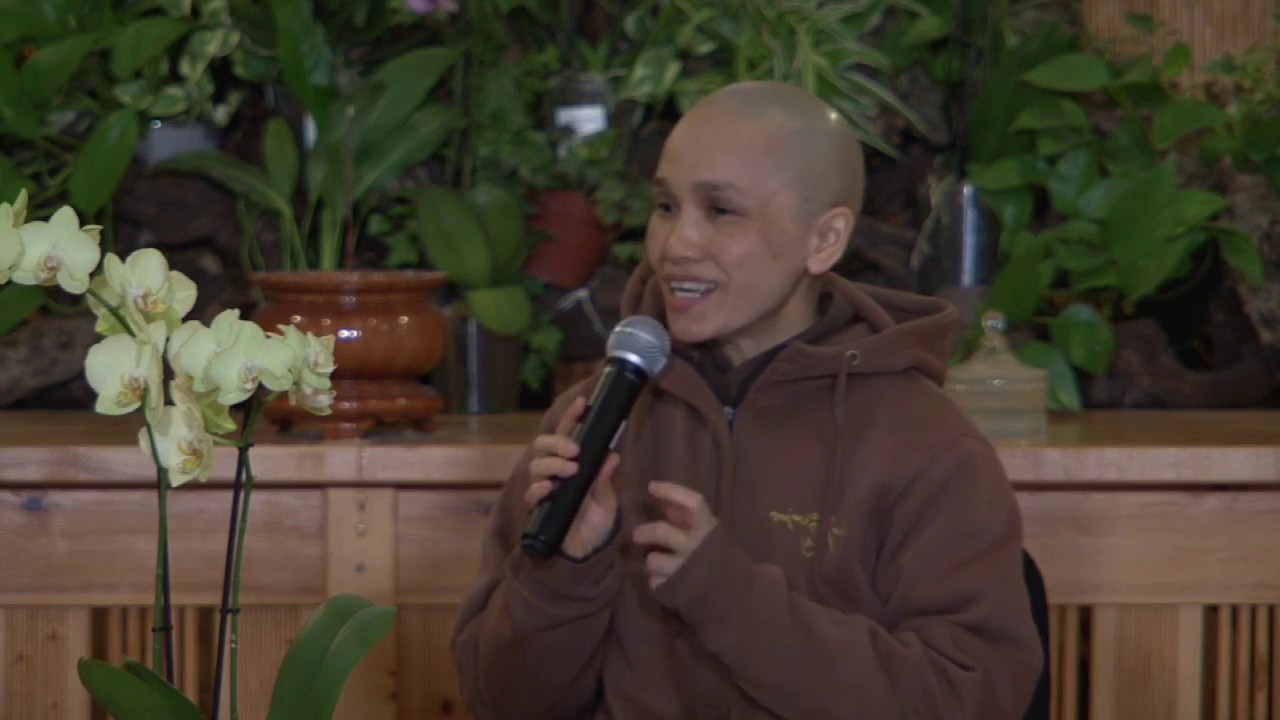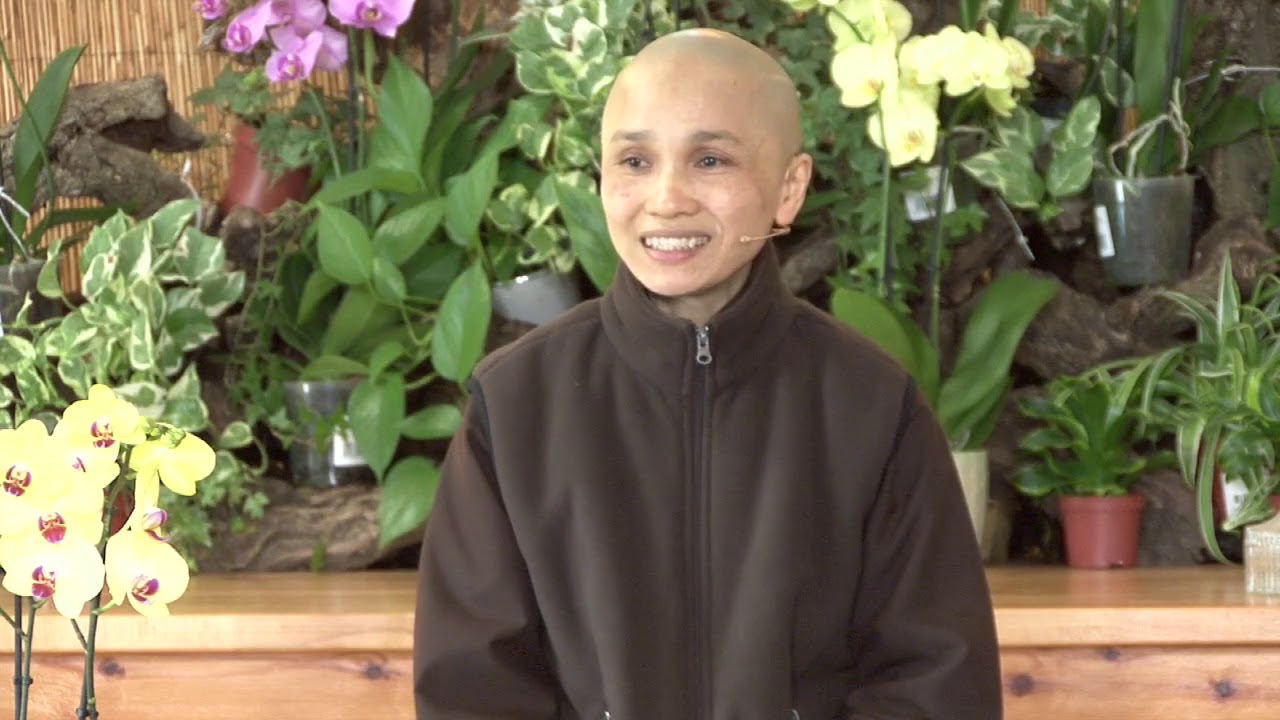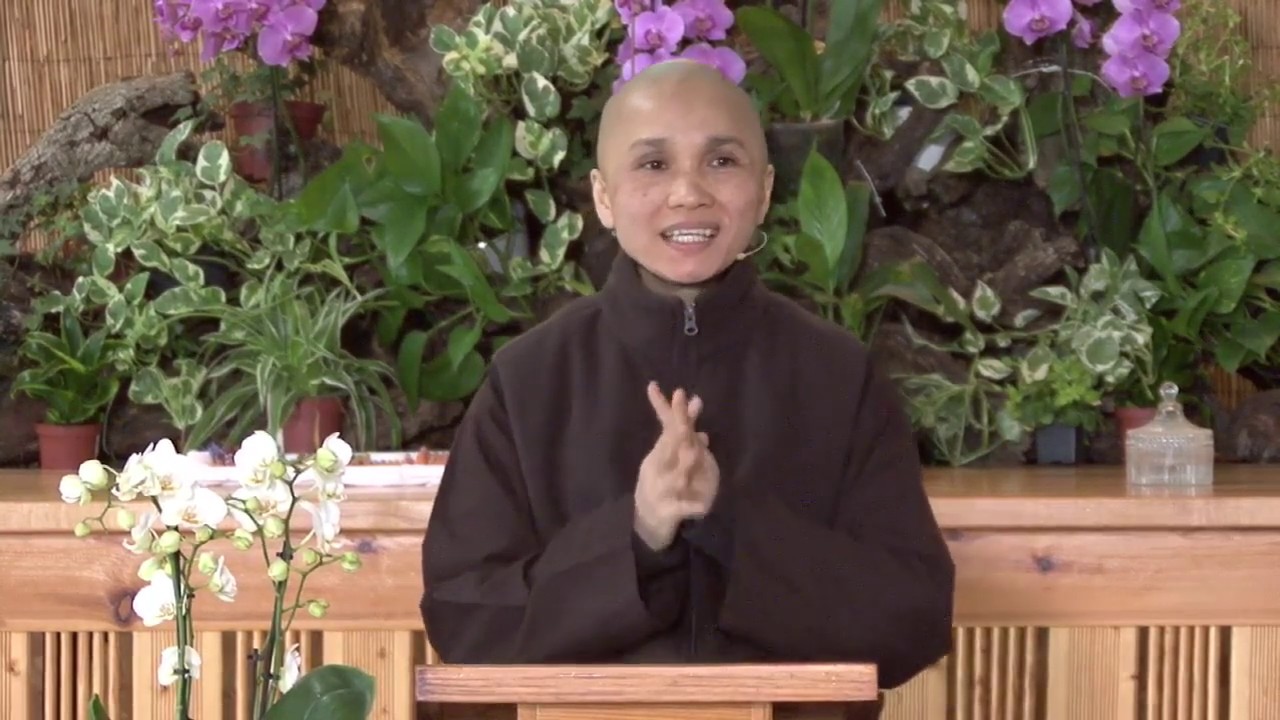Ease, or tranquility is a lightness and peace within. How do we cultivate this factor of awakening?
We can find a quiet place, sit down, start by being aware of the body. Feel the skin on our face, feel the pores of the skin breathing. We can breathe with our whole body and not just with our lungs. Healing happens when we are at ease. It is easier to be aware of the body first, then we can train to be more aware of the mind. We can untie knots in the mind just like releasing tense spots in the body.
Thay often taught: Every step brings healing. This will remain mere intellectual understanding until we have tasted it for ourselves. Then, and only then do we truly receive our heritage from Thay.
Sometimes we feel hurt by others; we react, like shaking a bleeding hand to evade the pain. But that only aggravates the wound. When we are calm, then we can heal, and when we are healed inside, we can forgive naturally.
Simply unfold yourself and peace, joy comes easily. No need to wish to be peaceful, joyful. The wish can become a block. Just sit. Just walk. Put weight on our feet so we are walking with the feet, not with the head. Train to be at ease when we are alone and we can also be at ease in a crowd. Train to be “easy” no matter the situation.
Do not try to run away. The path to enlightenment is very short: It is from mind to mind. If we run away, we go very far from the path.
The seven factors of awakening are like medicine. We need to know which is the right one for our mind. When the mind is excited and restless, the antidotes are the practices of ease, concentration, and equanimity. When the mind is sluggish, the antidotes are investigation, diligence, and joy.
Ultimately, the seven factors inter-are and practising one develops seven at the same time. They can be like a spiral, ever expanding, limitless.
Reflection: What are the moments of our daily life when we are at ease? Which factors of awakening are more suited to our mind right now?
—
You can support us by helping to caption & translate
https://amara.org/v/dwUt/
You can help us caption and transcribe this video on Amara






